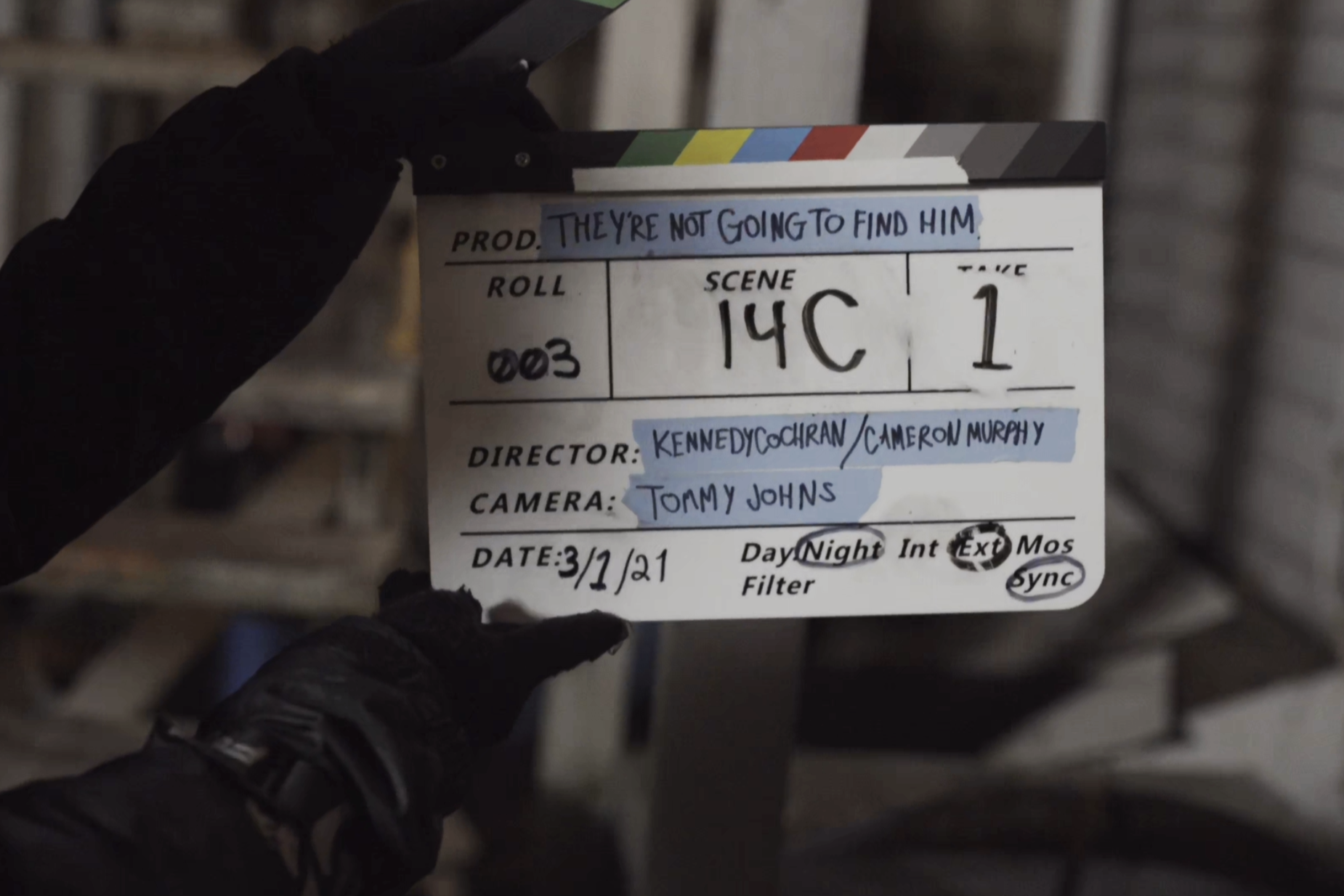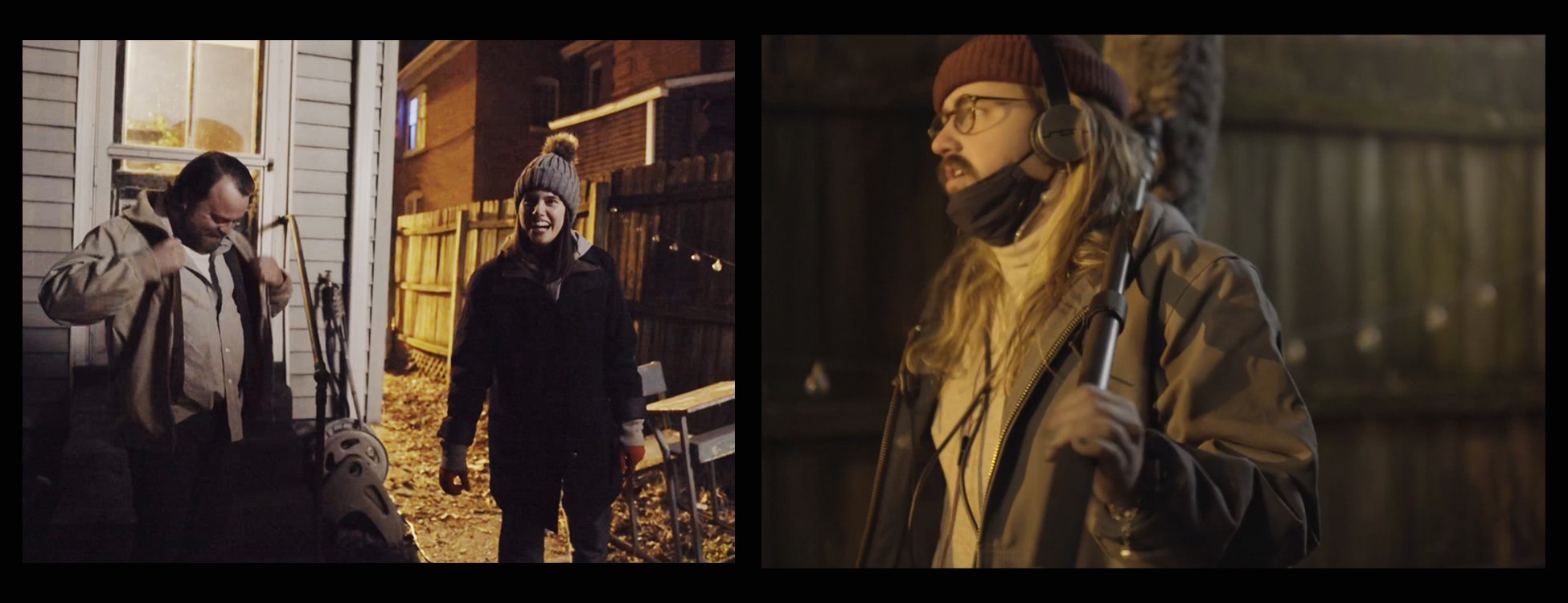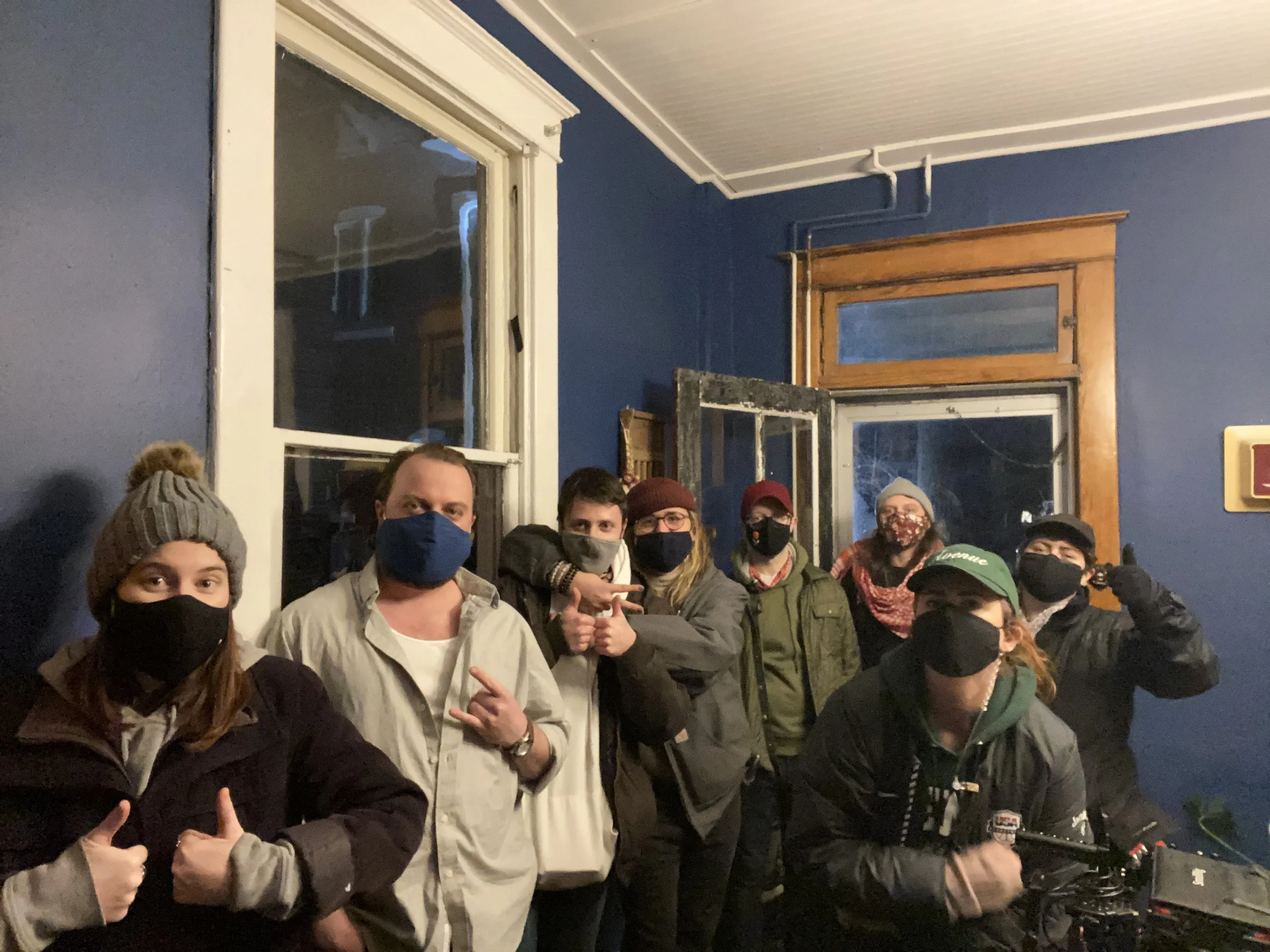SHORT FILM: THEY'RE NOT GOING TO FIND HIM
Long before message boards existed for every existential crisis imaginable and podcasts were being interrupted with advertisements for self-help apps, humans have always found ways to connect to in their loneliest hours. A message in a bottle tossed into the sea, a moment of heartbreak caught in sharpie on a bathroom wall, calling a 1-900 number from a phone sex ad for intimacy by the minute – they’re all the same thing at the end of the day.
DON’T LEAVE ME HANGING ON THE TELEPHONE
This story starts with a phone call for help.
Think back to the spring of 2020. We were in the early stages of figuring out how to live through a pandemic, hospitals around the world were at capacity and, as a gift to myself for my 30th birthday, I broke my leg.
Something I never considered about having a broken leg is that I would kinda lose my routine relationship with my arms at the exact same time because my arms were now in charge of crutching me around. I needed someone with me almost around the clock just to refill my water. When my partner went out of town for a pre-planned weekend trip, I called my little brother and asked him to come stay with me. The pandemic had brought his best friend, Cameron Murphy, back home to Louisville from Los Angeles for an indefinite break from his classes at USC. One night, they left me to fend for myself on the couch downstairs and wrote their first short film in my spare bedroom, a little snapshot of the desperate measures we take in desperate times called They’re Not Going to Find Him.
The pandemic raged on through the summer, fall and winter of 2020 which meant that Cameron and my brother, Kennedy Cochran, had plenty of time to make this short film into a reality. I’m not the kind of older sister who showers my brother with undue praise. If anything, I’m probably the exact opposite. But, their script was undeniably good. And by the time the fifth or sixth revision rolled into my inbox, their script was great.
Since it was their first go-around writing and directing (and the world was still virtually shut down) they started talking about ways to make it happen using what minimal equipment they had access to:
A small crew of volunteer friends
A camera and the island of misfit lighting gear
Maybe an AirBnB to act as the apartments for the two main characters?
Kennedy works in film production and Cameron comes from the theater world, so they could certainly call in some valuable favors, but the script deserved a realization that wasn’t so phoned in. I passed it along to my partners at Marquee Louisville and they signed on without hesitation…or compensation.
THEY’RE NOT GOING TO PAY THEM
Time to make more phone calls. We need a leading man and leading lady. We need a location. Maybe we need two locations? But we don’t have any money? Okay. Who is getting lunch? Are there any dietary restrictions? Wait, Kennedy probably shouldn’t direct and run sound the entire time, right? Who can we call? Hey guys! The weatherman is calling for an ice storm. Has anyone called to make sure our producer can still make it from Cincinnati?
We found our leads in Nick Hulstine and Megan Adair, who had known each other for years and volleyed the dialogue back and forth as if it were a real conversation between old friends. The script called for two sets, a fitting apartment for a single female and one for a single male. We found them both in one house after I visited some of my old friends and noticed their first floor was painted in rich jewel tones and adorned with scattered boxes of records, cookbooks, antiques and overgrown houseplants. Their second floor was white washed, simple, filled with dried flowers and mid century ashtrays.
They were going to sell the house soon and that gave us a concrete window to start rolling. No other option.
Everything was meticulously organized in the weeks leading up to filming by Emily Russo, a relatively recent addition to Kennedy and Cameron’s orbit, but you’d never know it if you caught a glimpse of them talking with no one else around. Miraculously, it seemed like we had figured everything out. We were going to actually make this thing happen. Undoubtedly, the most successful game of telephone I had ever played.
We had a full crew of volunteers, both on-and-off screen, who all sensed the same potential to produce something important from the 20 or so pages of achingly relatable dialogue between two lonely strangers connected by a phone line.
WE ALL HAVE MANY ROADS TO FOLLOW
We never know where life will take us.
In this story, one character is clinging to hope that her lost dog will one day find his way home and the other is searching to find one last shred of hope after losing the love of his life. In their loneliest hours, they find in each other the chance to be vulnerable and honest. We learn more about them as their conversation stretches on for hours and the phone sex line charges add up without any hint of flirtation or sexuality. They take this chance to be real with a stranger; to commiserate over how awkward and difficult life can be. We can see the sadness melt away from their faces in vignettes sweeping between their apartments.
And then? The twist.
When we shot the final scenes in the house belonging to our friends, Allison and Nathan, we knew we would never set foot in it again. Soon, a FOR SALE sign would be pressed into the icy soil and our friends would be setting off on a road that led to the West Coast and the chance to regain something that they had lost too. They had to close their beloved sandwich shop in downtown Louisville, an institution for 50 years until a pandemic and months of protesting ripped their neighborhood apart at its seams. You can see their shop’s sticker on the toaster shown prominently throughout the film and nearly every item, piece of furniture, or photograph you see belonged to them. In a way, their home is a third character in this story–one that feels like a ghost because this version of it disappeared almost as soon as the cameras stopped rolling.
They’re Not Going to Find Him is one of those titles that tells you everything you need to know about the film. When you’re drowning in a sea of grief, it’s hard to know which way to swim to resurface for air – but you have to keep searching. No one has the power to raise the dead or turn back time, but we do have the power to call out in the dark when we’re lost. Whether it’s a close friend or a stranger on a phone sex line, there are so many places to look to find a kindred spirit. And, at least to me, that lesson is the real accomplishment of this film. In under 20 minutes, you almost forget that these characters began as complete strangers — that one of them was contemplating suicide at the beginning.
For their first foray into writing and directing, Kennedy and Cameron taught us all a lesson in moving forward at the exact time we all needed it. We hope it does the same for you.
Follow Same Brain Films to keep up with future projects from Kennedy, Cameron and Emily. Most of the titling in this story is inspired by a band called The Nerves, who helped my brother and I figure out which road to follow after we lost our dad. If you need to get a story off your chest, we’re here to hear you out.





